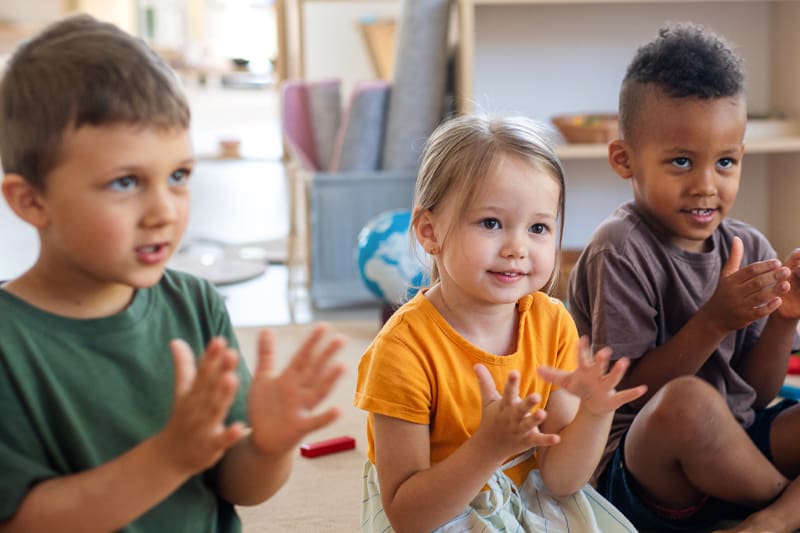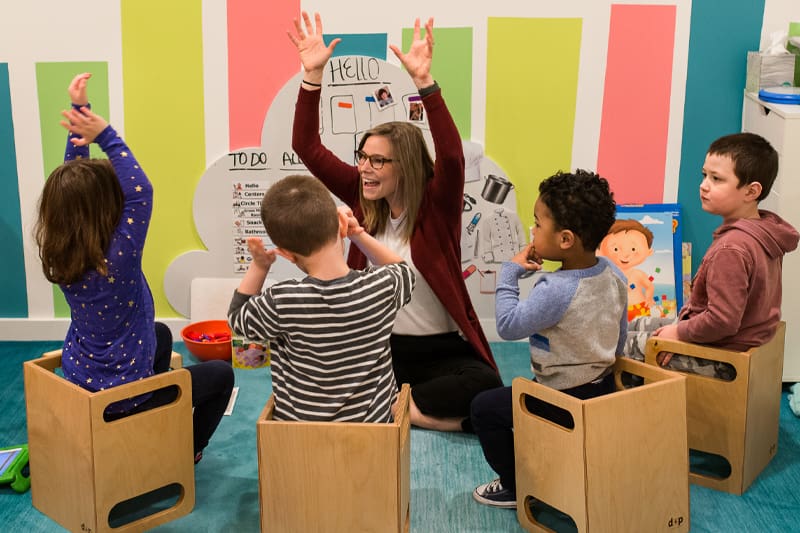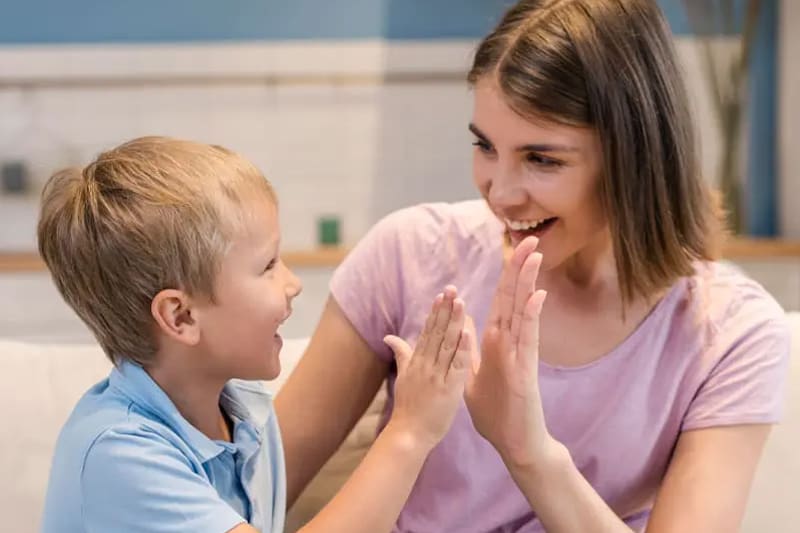Friendship Skills
at CST Academy
Making Friends. Building Empathy. Thriving Together.
At CST Academy, our Therapeutic Preschool program places a strong emphasis on developing friendship skills—an essential part of a child’s social and emotional growth. Learning how to make friends, share, take turns, and navigate group settings gives children the confidence to connect with others and feel a sense of belonging.
Get Started

What Are Friendship Skills?
Friendship skills are the essential social abilities children use to build and maintain positive relationships with their peers. These include sharing, taking turns, showing empathy, initiating and sustaining conversations, and resolving conflicts in healthy ways. For young children—especially those with developmental delays or social communication challenges—these skills may not come naturally and often need to be explicitly taught and practiced in supportive environments.
At CST Academy, our therapeutic preschool program is designed to nurture these foundational skills through structured group activities, guided play, and individualized support. By embedding friendship-building moments into daily routines, we help children learn how to engage with others, express themselves appropriately, and develop the confidence needed to connect with peers. Our therapists work closely with each child to create opportunities for growth, setting the stage for long-term success both socially and academically.
At CST Academy, our therapeutic preschool program is designed to nurture these foundational skills through structured group activities, guided play, and individualized support. By embedding friendship-building moments into daily routines, we help children learn how to engage with others, express themselves appropriately, and develop the confidence needed to connect with peers. Our therapists work closely with each child to create opportunities for growth, setting the stage for long-term success both socially and academically.
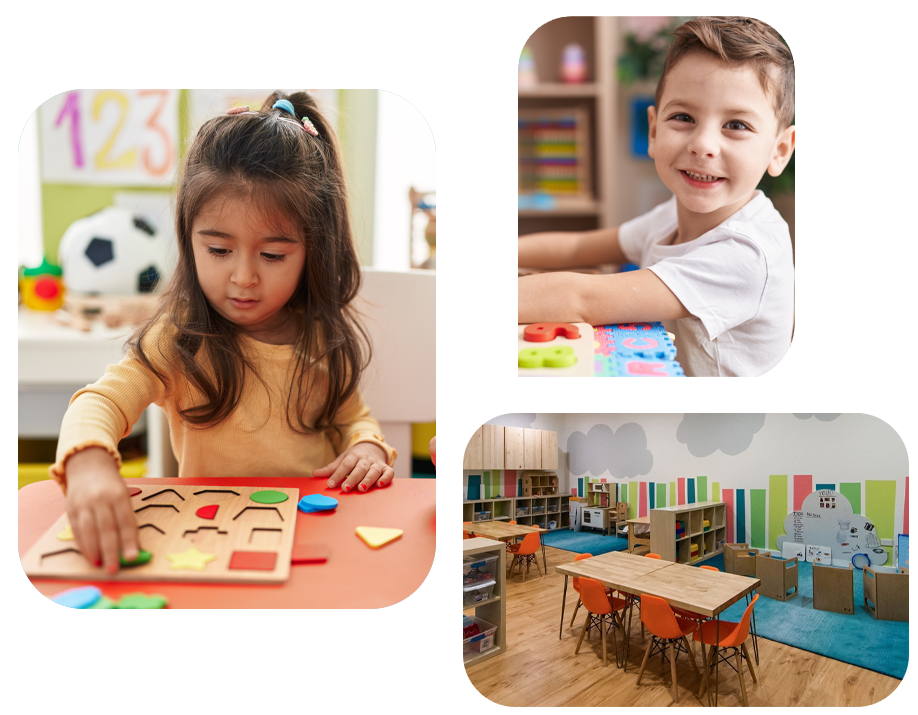
Why Choose CST Academy for Friendship Skills?
At CST Academy, we understand that friendships are a vital part of a child’s growth and happiness. Our therapeutic preschool provides a warm, supportive environment where children can practice social skills in real-time, guided by experienced therapists who specialize in early childhood development.
With small group settings, individualized goals, and evidence-based strategies, we help children learn how to engage, share, and build meaningful relationships. Whether your child is just beginning to interact with peers or needs extra support navigating friendships, CST Academy offers the tools, encouragement, and care they need to thrive socially.
With small group settings, individualized goals, and evidence-based strategies, we help children learn how to engage, share, and build meaningful relationships. Whether your child is just beginning to interact with peers or needs extra support navigating friendships, CST Academy offers the tools, encouragement, and care they need to thrive socially.
The CST Academy Difference
Choosing the right support for building friendship skills means choosing a team that understands the power of connection. At CST Academy, we create an environment where every child feels seen, valued, and supported as they learn to form relationships with others. Through thoughtful, play-based learning and consistent encouragement, we help children develop the essential skills they need to make—and keep—friends in ways that are natural, joyful, and lasting.
Growing Friendship Skills Step by Step
At CST Academy, we believe friendship skills are learned through positive experiences, gentle guidance, and consistent practice. Our therapeutic preschool setting offers daily opportunities for children to build these skills step by step in a safe, supportive environment.
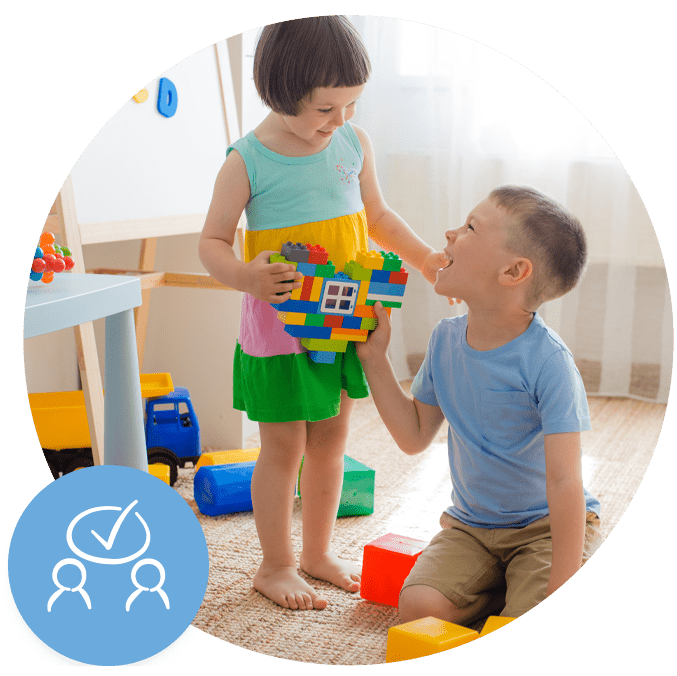
Empathy and Understanding Others
Empathy allows children to recognize and respond to the feelings of their peers. Our therapists use modeling, social stories, and real-life scenarios to help children understand how their actions affect others. These lessons support emotional development and help kids build stronger, more compassionate connections.
Sharing and Turn-Taking
Learning to share and take turns is a key foundation of friendship. At CST Academy, children practice these skills through guided play and group activities that make learning feel natural and fun. Therapists support children as they wait, offer, and accept shared items—helping them build patience and cooperative habits.
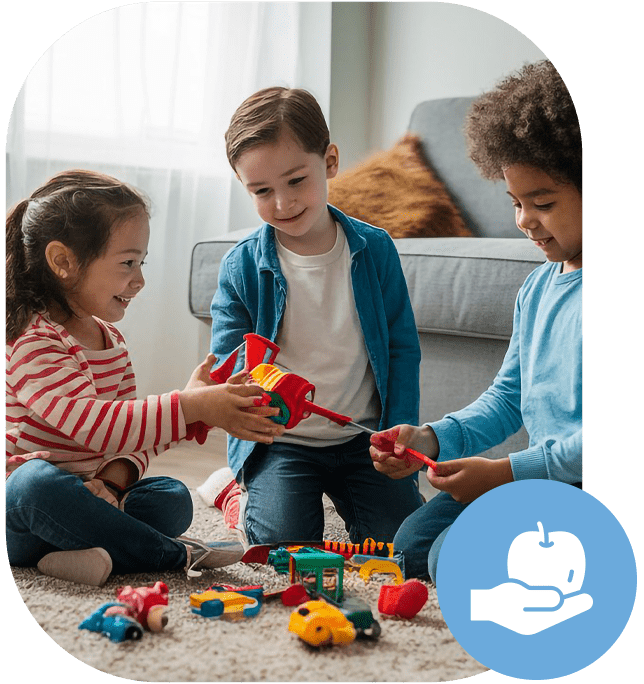
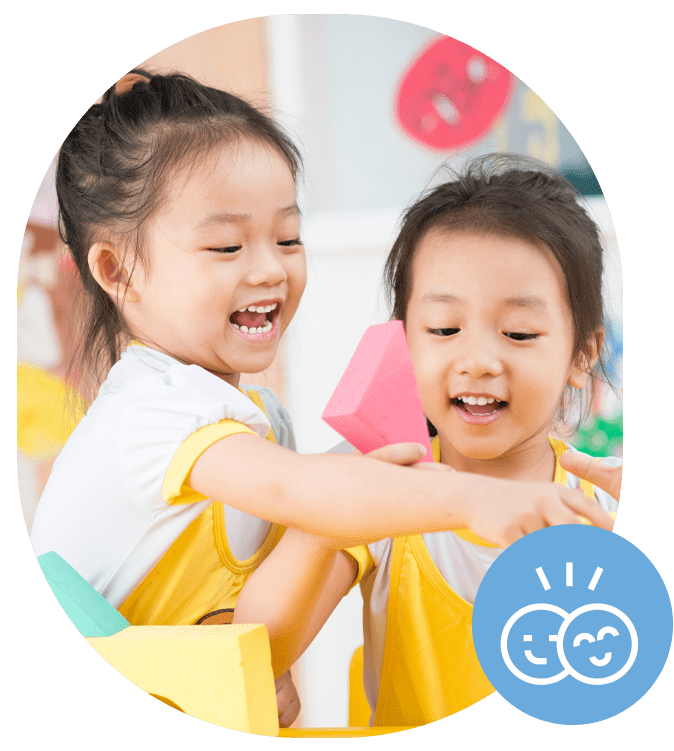
Making and Keeping Friends
From saying hello to asking someone to play, initiating friendships can be overwhelming for some children. We guide kids through these early steps and teach them how to maintain friendships over time—by checking in, offering help, and navigating disagreements. These social tools are introduced at the child’s developmental level and practiced daily.
Handling Conflicts Respectfully
Every friendship encounters challenges, and learning to resolve them calmly is essential. Our therapeutic team teaches children how to express their feelings, listen to others, and find fair solutions. These strategies empower children to manage conflict without aggression or withdrawal.
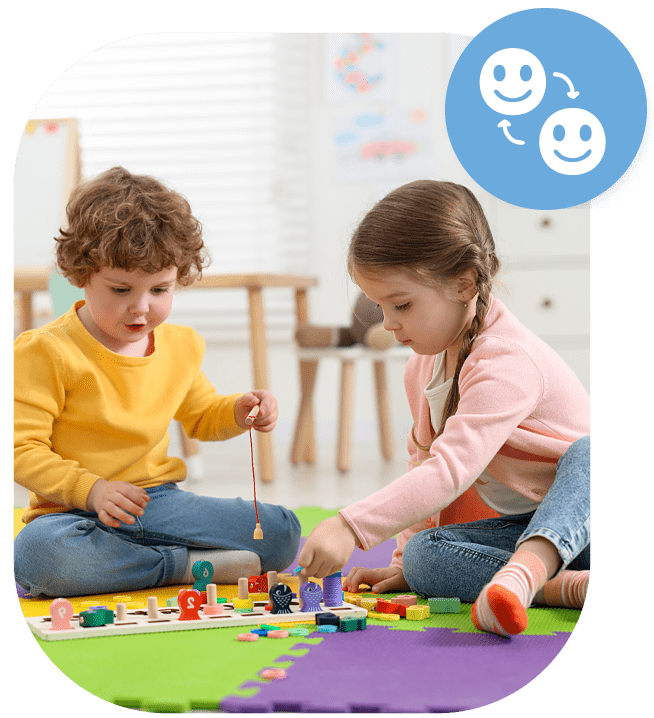
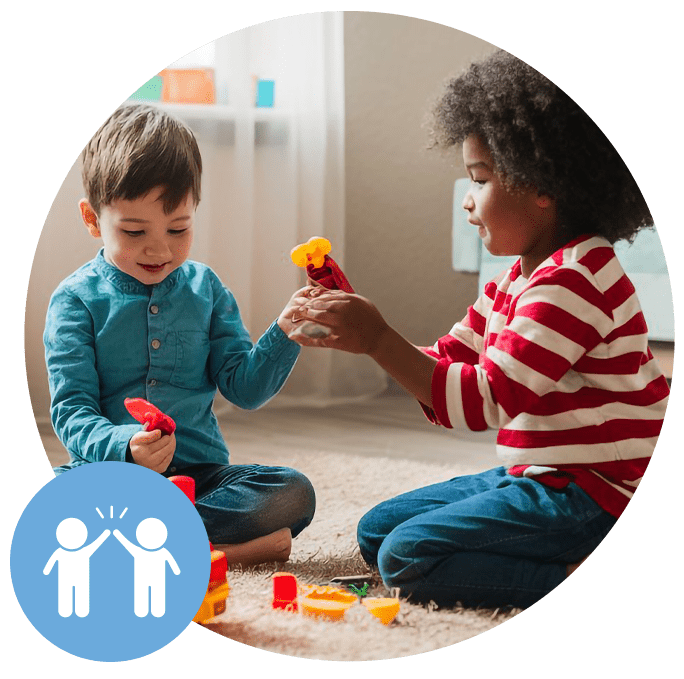
Building Confidence in Social Settings
Some children may feel anxious in group settings or unsure of how to join in. We focus on building each child’s self-esteem and comfort in social environments through structured peer play, positive reinforcement, and supportive coaching. Over time, children become more willing to engage, connect, and lead.
Reading Social Cues and Body Language
Understanding unspoken signals like facial expressions or tone of voice can be difficult for young learners. CST Academy uses visual aids, role-playing, and direct instruction to help children recognize and respond to these social cues. This improves peer interactions and helps reduce misunderstandings.
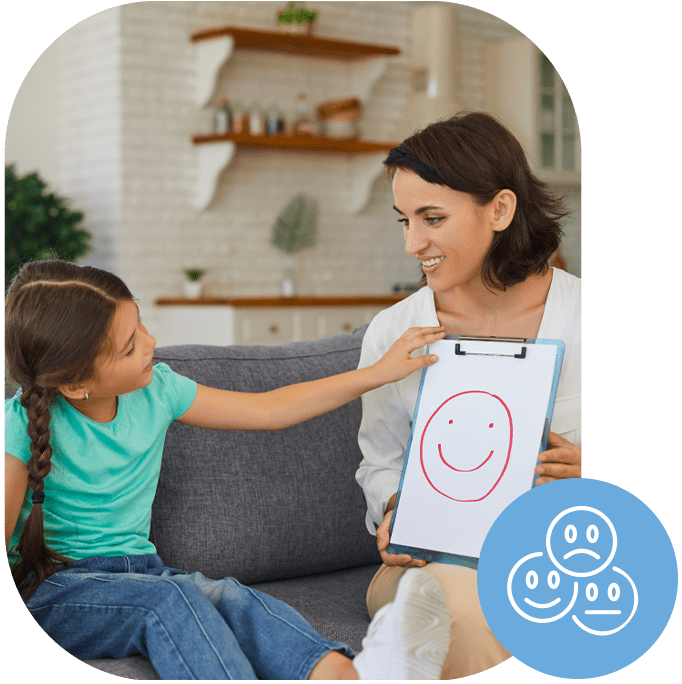
Start Your Journey with CST Academy Today
Getting started is easy. Our team is here to listen, guide, and create a care plan tailored to your child and your family.
"*" indicates required fields
When to Focus on Friendship Skills
Here are some common signs that may indicate your child could benefit from targeted support to build friendship skills. Every child develops social abilities at their own pace, but early guidance can set the stage for meaningful peer relationships.
Struggles to Initiate Play or Social Interaction
If your child tends to play alone, avoids engaging with peers, or seems unsure how to start a conversation or join a group activity, they may need help developing the confidence and skills to connect.
Difficulty Sharing or Taking Turns
Children who become upset when asked to share toys or wait their turn during play may need structured opportunities to practice these important social behaviors in a supportive environment.
Challenges with Empathy or Perspective-Taking
If your child struggles to recognize how others are feeling or often misinterprets social cues, it could impact their ability to build strong friendships. These skills can be developed through guided peer interaction and modeling.
Frequent Conflicts with Peers
Frequent arguments, hitting, or walking away from group play may suggest your child is having trouble with conflict resolution, emotional regulation, or collaborative play—all of which are essential to friendship-building.
Trouble Understanding Social Rules
Some children have a hard time following group norms, such as waiting to speak, asking before touching, or understanding personal space. These challenges can interfere with forming positive peer relationships and may benefit from direct teaching.
Low Confidence in Group Settings
If your child often clings to adults, hesitates to speak in front of peers, or seems withdrawn during group activities, they may need support to feel more confident and comfortable socially.
A Place Where Friendships Begin and Grow
At CST Academy, we believe that every child deserves the chance to experience the joy of friendship. Whether your child is learning how to say hello, share a toy, or navigate their first playdate, our team is here to guide them with warmth, patience, and proven strategies that build real-world social connections.
We create safe, encouraging environments where children feel empowered to try new things, connect with peers, and celebrate every breakthrough—big or small. With individualized support and a strong emphasis on play-based interaction, we help children build the confidence and skills they need to form lasting, meaningful friendships. Because at CST Academy, friendship is more than a milestone—it’s a lifelong foundation for joy, belonging, and growth.
We create safe, encouraging environments where children feel empowered to try new things, connect with peers, and celebrate every breakthrough—big or small. With individualized support and a strong emphasis on play-based interaction, we help children build the confidence and skills they need to form lasting, meaningful friendships. Because at CST Academy, friendship is more than a milestone—it’s a lifelong foundation for joy, belonging, and growth.

What Other Families Are Saying About CST Academy’s Friendship Skills Support
CST Academy helped my daughter come out of her shell and truly connect with others.
Before starting, she struggled with making eye contact or even saying hello. Now, she’s initiating conversations and asking to have friends over. The growth we’ve seen in just a few months has been incredible.
– Melissa T.
Making friends used to be a huge challenge for our son.
CST Academy’s approach gave him the tools—and confidence—he needed to navigate social situations. He came home excited about group activities and would tell us who he played with each day.
– Andre M.
The therapists at CST Academy don’t just teach skills—they build relationships.
Our child used to shy away from other kids, but now he participates in group games and even shares toys without prompting. The changes have been amazing to watch.
– Laura B.
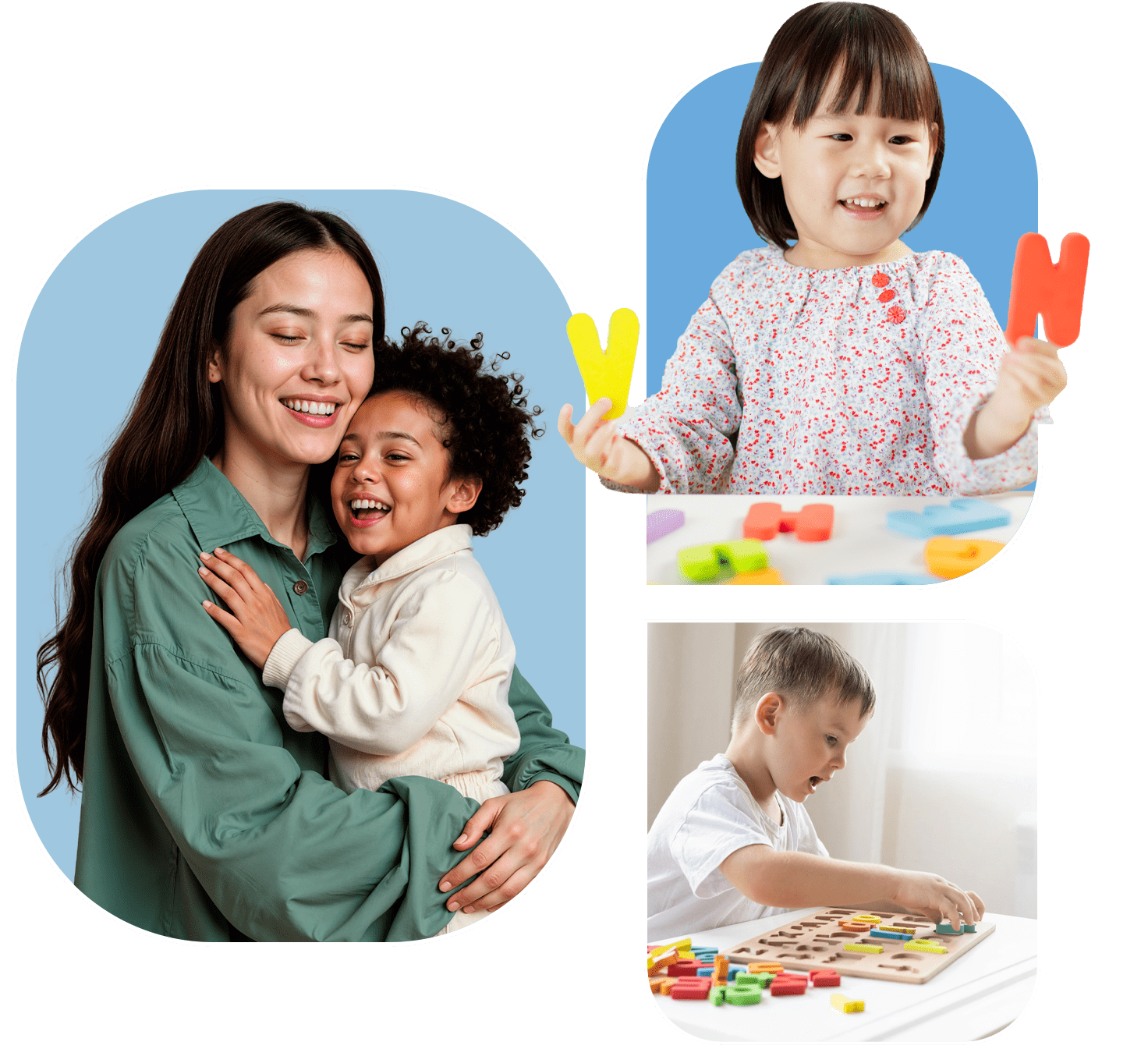
Friendship Skills at CST Academy’s Therapeutic Preschool
Fostering authentic peer connections through guided social learning and inclusive play.
At CST Academy, our Therapeutic Preschool is thoughtfully designed to help children build essential friendship skills that support social development and emotional growth. Through structured activities, cooperative play, and personalized support, we help children learn how to initiate interactions, take turns, express empathy, and form lasting bonds. Whether your child is just starting to explore social relationships or needs extra support to navigate them confidently, our team is here to guide each step of the journey.
Therapeutic Preschool
Get Started
Frequently Asked Questions
About Friendship Skills
Friendship skills include sharing, turn-taking, initiating play, and managing emotions in social settings. These skills help children build meaningful peer relationships and navigate group environments successfully.


